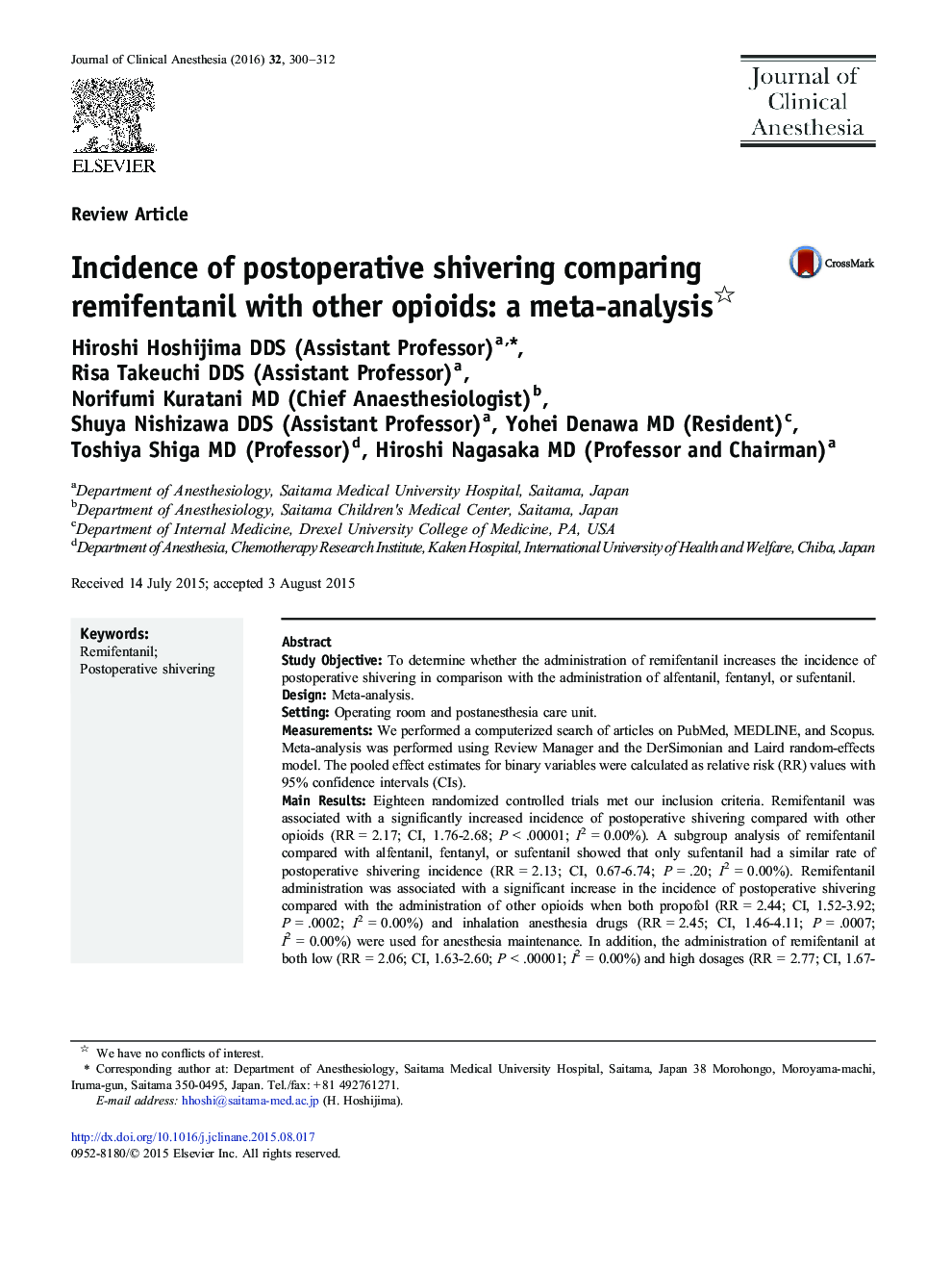| Article ID | Journal | Published Year | Pages | File Type |
|---|---|---|---|---|
| 5884894 | Journal of Clinical Anesthesia | 2016 | 13 Pages |
â¢We examine whether the administration of remifentanil increases the incidence of postoperative shivering in comparison with the administration of alfentanil, fentanyl, or sufentanil.â¢Remifentanil compared with alfentanil, fentanyl, or sufentanil showed that only sufentanil had a similar rate of postoperative shivering incidence.â¢Remifentanil administration was associated with a significant increase in postoperative shivering when both propofol and inhalation anesthesia drugs.â¢The administration of remifentanil at both low and high dosages was associated with a significant increase in postoperative shivering.
Study ObjectiveTo determine whether the administration of remifentanil increases the incidence of postoperative shivering in comparison with the administration of alfentanil, fentanyl, or sufentanil.DesignMeta-analysis.SettingOperating room and postanesthesia care unit.MeasurementsWe performed a computerized search of articles on PubMed, MEDLINE, and Scopus. Meta-analysis was performed using Review Manager and the DerSimonian and Laird random-effects model. The pooled effect estimates for binary variables were calculated as relative risk (RR) values with 95% confidence intervals (CIs).Main ResultsEighteen randomized controlled trials met our inclusion criteria. Remifentanil was associated with a significantly increased incidence of postoperative shivering compared with other opioids (RRÂ =Â 2.17; CI, 1.76-2.68; PÂ <Â .00001; I2Â =Â 0.00%). A subgroup analysis of remifentanil compared with alfentanil, fentanyl, or sufentanil showed that only sufentanil had a similar rate of postoperative shivering incidence (RRÂ =Â 2.13; CI, 0.67-6.74; PÂ =Â .20; I2Â =Â 0.00%). Remifentanil administration was associated with a significant increase in the incidence of postoperative shivering compared with the administration of other opioids when both propofol (RRÂ =Â 2.44; CI, 1.52-3.92; PÂ =Â .0002; I2Â =Â 0.00%) and inhalation anesthesia drugs (RRÂ =Â 2.45; CI, 1.46-4.11; PÂ =Â .0007; I2Â =Â 0.00%) were used for anesthesia maintenance. In addition, the administration of remifentanil at both low (RRÂ =Â 2.06; CI, 1.63-2.60; PÂ <Â .00001; I2Â =Â 0.00%) and high dosages (RRÂ =Â 2.77; CI, 1.67-4.57; PÂ <Â .0001; I2Â =Â 0.00%) was associated with a significant increase in the incidence of postoperative shivering compared with the administration of other opioids.ConclusionsOur meta-analysis showed that remifentanil was associated with an increased incidence of postoperative shivering compared with alfentanil or fentanyl, but no significant difference was seen when compared with sufentanil.
